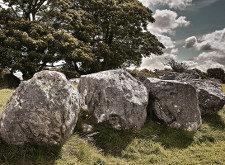Portrait of a God-Honoring Church, Part 2
(Read Part 1.)
5 - Jesus Did Good by Preaching the Gospel
How God anointed Jesus of Nazareth with the Holy Ghost and with power: who went about doing good, and healing all that were oppressed of the devil; for God was with him., (Acts 10:38)
Some “churches,” some denominations, and many cultural “Christians” seem to think of the Lord Jesus Christ as a Salvation Army employee. His job is to do nice things to make disadvantaged people feel happy, and to foster a sense of well-being and happiness in the community. This is the social Gospel, popularized by the novel In His Steps. It’s a false Gospel, which doesn’t bring peace.




 (Read the
(Read the 
Discussion